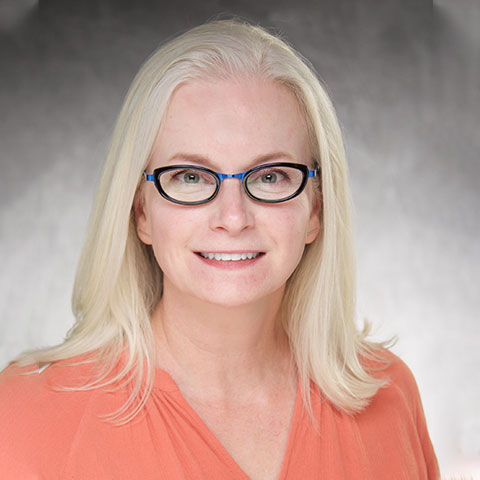Voice of America Features Boys Town® Researcher Karla McGregor, Ph.D.
Thursday, December 3, 2020
Recently, Voice of America (VOA), the United States' largest international broadcaster, featured an article about U.S. students with disabilities being afforded reasonable accommodations and the chance to succeed thanks to the 1990 Americans with Disabilities Act.
Students as young as 3 years of age can access IEPs (individual education programs) that address a multitude of learning issues including developmental language disorder (DLD) and ADHD, as well as other physical, medical and learning disabilities. Reasonable accommodations such as extended test-taking time, dedicated note-takers and sign language interpreters can continue through college to help students reach their full potential.
 “We want a diverse student population. And having these students included is super important," Dr. Karla McGregor, Director of the Center for Childhood Deafness, Language and Learning and professor emeritus at the University of Iowa, said in the VOA article.
“We want a diverse student population. And having these students included is super important," Dr. Karla McGregor, Director of the Center for Childhood Deafness, Language and Learning and professor emeritus at the University of Iowa, said in the VOA article.
However, only 33% of students eligible for reasonable accommodations at a college level receive them. This is due, in part, to the high cost involved in testing for accommodations, as well as the fear of being stigmatized, Dr. McGregor shared in the article.
Helping students with communication and learning disabilities is what led Dr. McGregor to her current position as Director of the Center for Childhood Deafness, Language and Learning at Boys Town National Research Hospital®. Dr. McGregor specializes in DLD, a neurodevelopmental disorder that limits a person's ability to learn, understand and use language.
DLD affects 7% of the population, which translates to about two children in every classroom. Despite its prevalence and impact on learning, listening and speaking, DLD has historically suffered from a lack of societal awareness and clinical studies.
Dr. McGregor often describes DLD as “a hidden disorder." Many children with DLD go unnoticed because they have mastered the minimums necessary for communication. DLD goes by many names – language delay, specific language impairment, expressive-receptive language disorder, speech-language impairment or language learning disability – and this, too, hinders understanding of the condition.
“Many children who are identified with DLD are diagnosed because they have a co-occurring condition such as a speech impairment, or a behavioral concern that is more noticeable to adults than immature language patterns. However, the consequences for academic success with DLD are often greater than those of co-occurring conditions," said Dr. McGregor.
Raising awareness of DLD is a major objective for Dr. McGregor. She is a founding member of DLDandMe.org, a website created by a nationwide panel of expert volunteers, with the mission of raising awareness amongst educators, parents and policymakers.
DLDandMe.org provides an overview of DLD and articles summarizing the latest DLD research.
Dr. McGregor is also the U.S. representative on the board of
Raising Awareness of Developmental Language Disorder. This international organization hosts yearly DLD Awareness Day campaigns and on-going multimedia offers on DLD. The 2021 DLD Awareness Day is scheduled for October 15th.
Together these two organizations, along with researchers like Dr. McGregor, hope to alert parents and educators to the potential signs of DLD, as well as make clear the importance of spoken language development in children's academic and social success.
